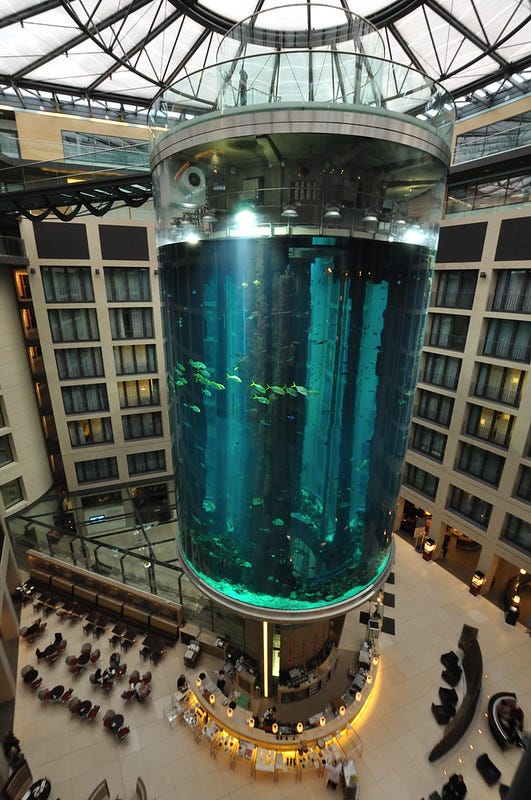
Hey 20 Percent!
At least we got something positive from the two pandemic years: cheaper public transport. VBB, the association of public transport associations in Berlin and Brandenburg, Thursday agreed to extend the €29 ticket for Zones A and B through April. The federal government is working to introduce a nationwide €49 ticket in May based on the wildly successful €9 ticket from last summer.
That’s probably the most nines I’ve ever written in a paragraph.
If you cancelled your €29 ticket already because it was ending Dec. 31, you can still uncancel it here and if you haven’t signed up yet, you have until Dec. 20 to get the ticket for January (and every month thereafter).
I know it’s complicated but we all know that’s because this is Germany.
And a quick correction to Tuesday’s newsletter: If you own any kind of property in Germany you have until Jan. 31 to complete your property tax statement. We erroneously said it was Dec. 31 but in our defense, we both thought it was. Thanks for keeping us honest, reader James!
Hoch die Hände, Wochenende (throw up your hands, it’s the weekend. It sounds better in German),
Andrew
P.S. We’re still happy to take your hard-earned money on our Patreon and please come to our office Christmas party next Thursday! I don’t want to have to stand there alone with Maurice — he’s not that interesting.
Berlin corona stats for Friday, December 16
New cases in one day: 2,499 (2,499 Tuesday)
Total deaths: 5,193 (+17 over Tuesday)
➡️ 7-day Covid-19 incidence (cases per 100,000): 284.3 (240.1 Tuesday)
➡️ 7-day hospitalization incidence (also per 100,000): 20.7 (19.6 Tuesday)
➡️ Covid-19 ICU patient occupancy: 6% (5.8% Tuesday)
Source: Berlin’s corona page
We believe you, kid
Children who miss three or more days of school — or a test — because of illness no longer need to get a note from their doctor, Berlin health minister Ulrike Gote (Die Grüne) announced Thursday. The move is an attempt to free up capacity at the city-state’s pediatricians and pediatric emergency rooms. Many offices and hospitals are at capacity because of the current wave of illnesses — the Charité hospital in Mitte is reportedly postponing all non-essential surgery to deal with the surge. Berlin is so lacking in medical personnel that it’s even asking all medical students to report to pediatric emergency rooms to pitch in.
A tiny, long overdue step against Raser
The borough of Charlottenburg-Wilmersdorf finally decided to do a little something against the constant illegal street racing on Kurfürstendamm, installing a single radar trap in front of the Schaubühne, according to Tagesspiegel. The installation comes nearly on the same day Germany’s constitutional court refused to overturn the conviction of a man who was found guilty of murder after his car slammed into a Jeep on Kurfürstendamm. The man and a competitor were racing just after midnight on Feb. 1, 2016 at between 160 and 170 km/h near Tauentzienstraße when they hit the Jeep, killing the 69-year-old driver. The Raser (people who like to drive fast) was sentenced to life and his rival to 13 years in prison but officials have done little to stop the practice — a mother and daughter were severely injured in a similar crash near the Schaubühne in August of 2020.
You probably already know about the aquarium
It’s a bad day to be a fish in Berlin: The AquaDom aquarium in the Radisson hotel near the cathedral collapsed early this morning, spilling 1 million liters of water and 1,500 fish into the lobby and out onto the adjacent streets. Tagesspiegel reports that two people were injured and transported to hospital. Four hundre people were evacuated from the hotel after emergency services were alerted at 5.43am. A Berlin pol was quoted by newswire dpa as saying a technical defect likely led to the debacle. Here’s hoping a few of the fish made it into the nearby Spree and can survive in (stinky) freshwater.
Factoid

The first Stolperstein (stumbling block) was laid by artist Gunter Deming at the Cologne city hall on this day in 1992. The blocks commemorate those murdered by the Nazi regime — Berlin’s first Stolperstein was laid in 1996. Deming first wanted to put placards on the buildings where the victims lived but opted for the brass blocks to circumvent resistance from landlords. More than 70,000 Stolpersteine have now been placed in more than 1,265 German cities as well as 24 countries.
⭐⭐⭐Please visit our sponsor!⭐⭐⭐
Sign up for a German course before January 31 and use the code 23RESTART on checkout to get €30 discount.
We offer online and in-person courses in Berlin for all levels, mornings and evenings, at regular pace or intensive — you choose what suits you best. And if you're an absolute beginner, you can join the fastest German course on the market — our experienced teachers will get you through A1.1 in just four days!
Forget the old NY resolutions!






Almost like the plot of Nemo